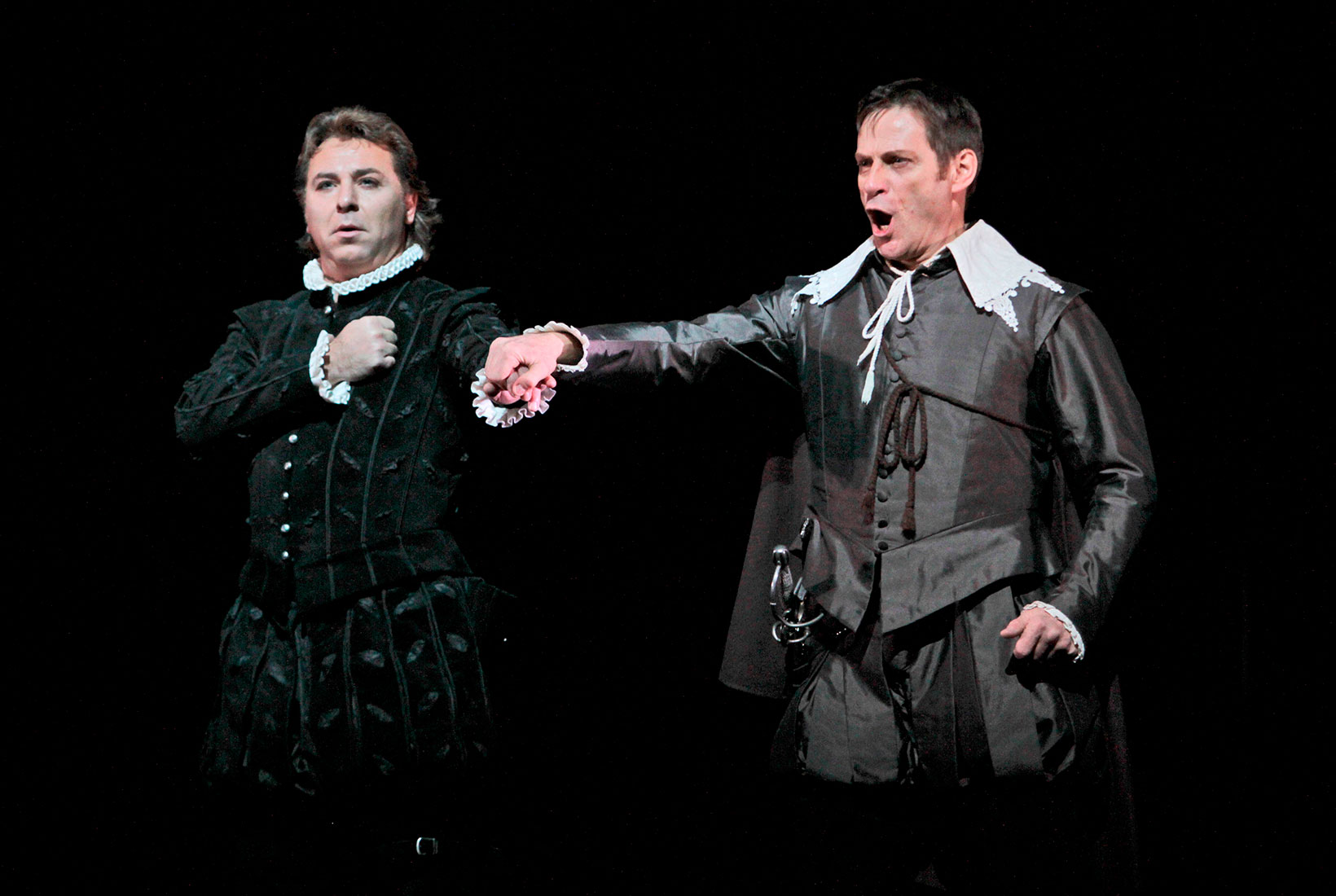In the 62 years since I first heard and saw Don Carlo, in the famous and long-lasting production by Visconti at the Royal Opera, my feelings about it have grown ever stronger, both in passionate attachment and in critique. Imperfect operas, like other imperfect phenomena, can be more interesting than perfect ones, because they’re more thought-provoking, more enticing.
The libretto, very freely based on Schiller’s play, was by two Frenchmen, and Verdi, eager to make a bigger splash than he had so far in Paris, made too much of one. The first performance, in 1867, ran so late that the members who lived outside central Paris missed their last trains, which were at 12.35 a.m. (Royal Opera and ENO: please take note).
Verdi returned to Italy, and the opera seems to have been ignored — apart from oddly cut performances — until 1884. Given how great much of it is, and how much effort had gone into it, that is astounding. In 1884 Verdi revised it, cut the whole of Act I and lots more besides, and it was successfully staged at La Scala.
The cast is strong, though Thomas Hampson as Rodrigo seems to have borrowed a wig from Susan Sontag
That was by no means the end of his messing around, and so there are four versions, though each is still subject to extensive tinkering. Perhaps the most remarkable thing in its tortured history is that in 1970 Andrew Porter, the great English critic, discovered in the library of the Opéra the score of the first performance, with many pages stuck together. Porter slowly and painfully unglued them, and copied out what he found, which was a great deal. What had always been a problematic work became radically unwieldy, though he found some marvellous music, some of which is now regularly included.
All that should make Don Carlo an ideal opera for recording, where it doesn’t matter how long a piece is. Partly, perhaps, because the composer tinkered with it so often and for so long, and partly because some of the music is evidently feeble, and above all because Verdi never seems to have got to grips with what he really felt the opera is about, it is no good trying to make it into a coherent work.
In the original version of the opera, Verdi sets out a strong social and political tone at the start of Act I. Then Don Carlo, unrecognised, turns up and he and Princess Elisabeth fall in love at the speed known only to operatic characters. Subsequently a messenger comes to tell them that Philip II, Carlo’s father, has decided he will marry Elisabeth, and the act ends in the lovers’ despair.
When Verdi took the drastic step of simply eliminating that Act, he inserted Carlo’s aria into the former Act II, where it has no business. The trouble remains that there are too many characters in the work, and their relationships are so complicated that there has to be lots of music, and some strange lacunae, to cope with them all. Despite which, there are many wonderful passages, and the last act, in which Elisabeth sings Verdi’s greatest aria and then she and Carlo have a chain of farewell duets, is sublime.
What is amazing is that Don Carlo has fared so well on record, and especially on DVD, though with so many roles there is always at least one disappointment. It is still possible to hear that 1958 performance, if in dim sound, with Gobbi, Christoff, Brouwenstijn, and Jon Vickers as Carlo. The first notes I ever heard Vickers sing were ‘Fontainebleau’, conveying an astonishing amount in that word: Carlo is unhinged, and since everything Vickers sang was a mad scene, he was ideal.
Many recordings followed, with Giulini’s on EMI still estimable, though with many little cuts. Abbado, a great advocate of the opera, made the only commercial recording in French, but it is a lacklustre affair despite its distinguished cast. Karajan recorded it to uniformly grim effect, and dispensing with Act I. There’s a DVD of the production from Salzburg too, with superb singers, but it’s more depressing than moving.
Otherwise DVDs are the way to go, with an astonishing number of excellent performances. Only one contains the ballet music (Verdi was anxious to avoid Wagner’s fate, when in 1861 Tannhäuser was booed off the stage for having the ballet music in the wrong place). This version is directed by Peter Konwitschny, but is less wacky than he usually is, and with an all-round decent cast.
Two DVDs from Covent Garden, both conducted by Pappano, are largely excellent: one primarily for the Rodrigo of Simon Keenlyside, the role he was born to sing and act, though the other males are rusty. The other stars Jonas Kaufmann, who croons in the final duet, and Anja Harteros, fine as Elisabeth.
The most satisfying performance by far — also conducted by Pappano, in 1996 — is in French, from the Châtelet, with Roberto Alagna in stupendous voice, and identifying with the title role to an almost uncanny extent. The cast is strong, though Thomas Hampson as Rodrigo seems to have borrowed a wig from Susan Sontag, and makes a bland impression. The final scene — French makes a big difference, though I’d be hard put to say why — is the most moving I have ever seen or heard.







Comments